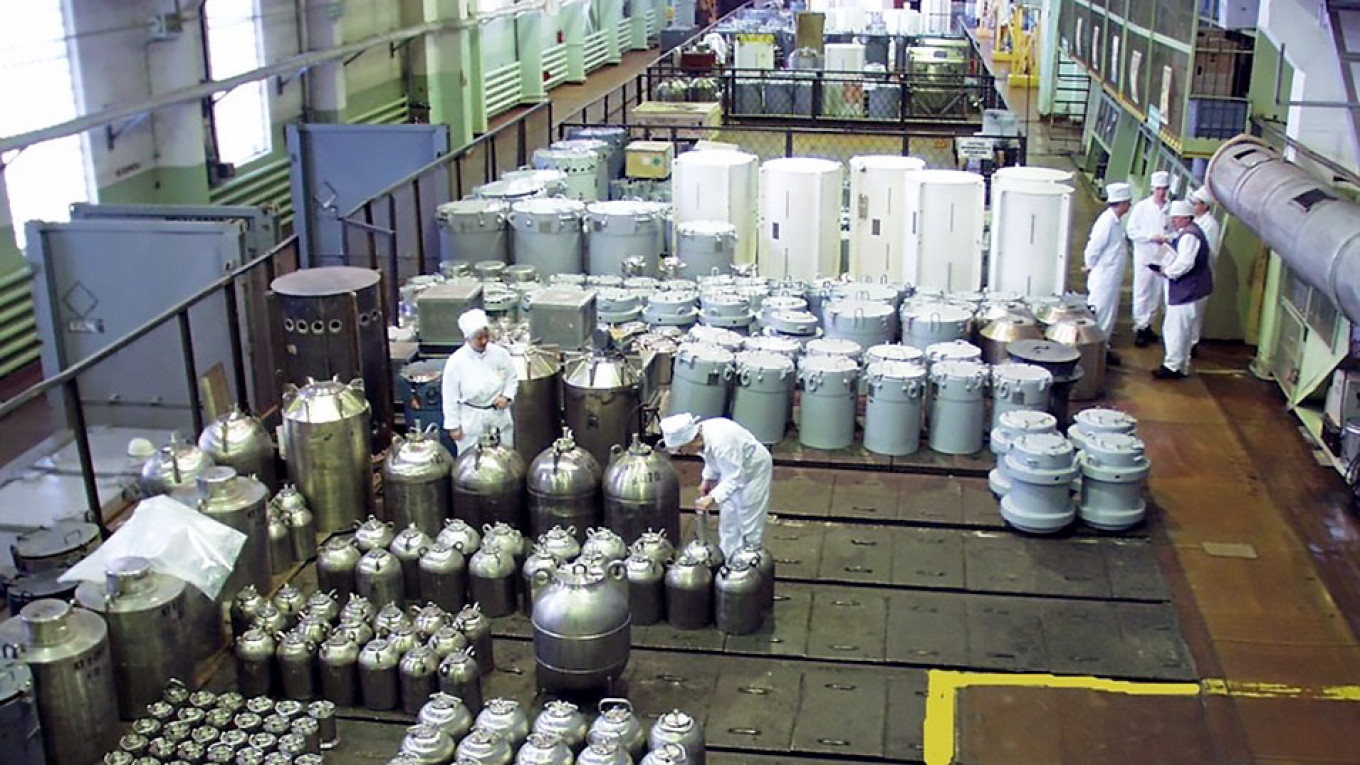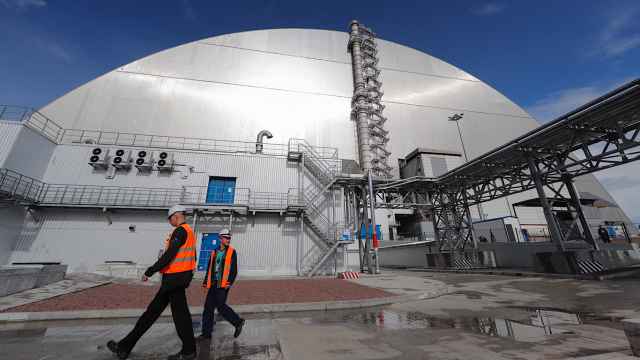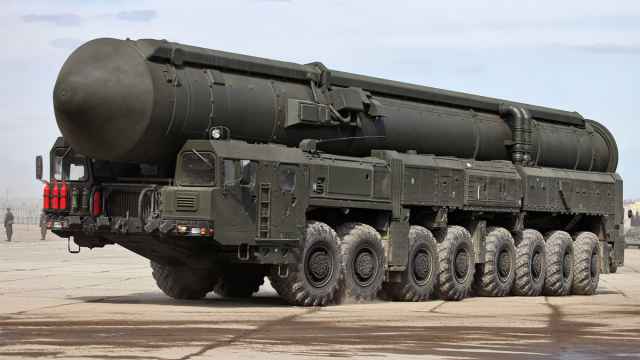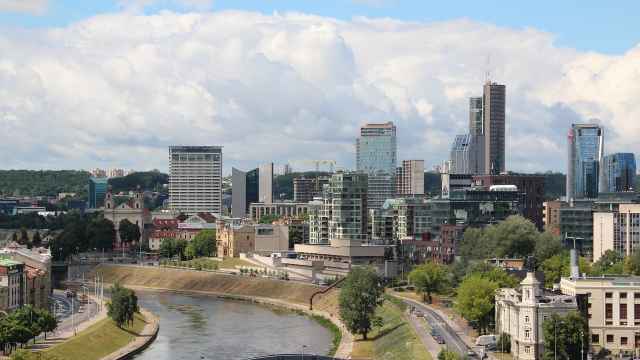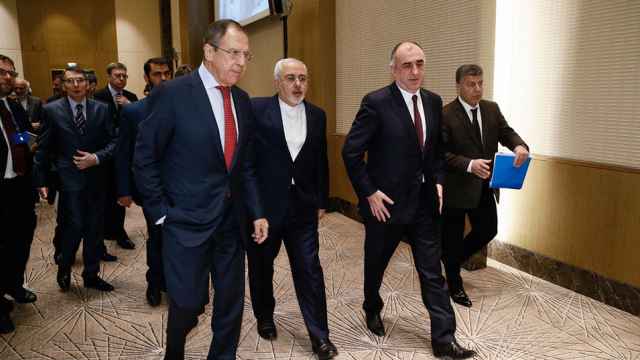When the Home Box Office Inc series on the Chernobyl disaster became a surprise hit earlier this year, I wished Russia or one of the other directly affected countries, Ukraine or Belarus, had made a similarly honest attempt to commemorate the catastrophe. Now there’s proof that today’s Russia is incapable of it: It handles its nuclear accidents in the same way the Soviet Union tried to do in April, 1986.
On July 26, a large group of experts led by Olivier Masson from the Institute of Radioprotection and Nuclear Safety in Durance, France, and Georg Steinhauser of the Institute of Radioecology and Radiation Protection in Hanover, Germany, published a paper definitively attributing a radiation cloud that spread over Europe in 2017 to an undeclared accident in the Southern Urals region of Russia, likely at the Mayak nuclear facility near Chelyabinsk.
Two years ago, Russia promised to investigate where the cloud could have come from, but a commission formed on Russia’s initiative failed to produce a clear conclusion. At the same time, Mayak and Rosatom, the state-owned nuclear power company to which it belongs, have denied that any accident took place.
In late September 2017, several Russian regions and then a number of European countries detected high concentrations of radioactive ruthenium-106 in the atmosphere. As the contamination traveled, more countries noticed it and published reports. The first Russian denials, from the authorities of the Sverdlovsk and Chelyabinsk regions in the Urals, came a week later. Even after the Russian state weather service Roshydromet reported ruthenium-106 pollution in the South Urals, a Rosatom-led commission insisted the contamination wasn’t the result of an accident and suggested that it could have been caused by a defunct satellite burning up in the atmosphere.
The Masson-Steinhauser group ruled out the satellite theory: Such an incident would have caused higher concentrations of ruthenium at high altitudes, which was not the case. Instead, the researchers argued that only a nuclear reprocessing facility could have caused this particular type of contamination. A number of Western and Russian facilities had been responsible for ruthenium-106 releases in the past.
By analyzing the weather patterns and ruthenium measurements, including those from Roshydromet, the international team placed the source close to the location of Mayak, the erstwhile scene of a major nuclear disaster — the 1957 “Kyshtym Accident” that forced the evacuation of 10,000 people in the area and caused long-term consequences for residents’ health.
The 2017 ruthenium release, luckily, hurt no one — the radioactive gas quickly became diluted and there was no significant fallout. This made it easier for the Russian authorities to deny that an accident had taken place. But then, just like in the Soviet Union, which did its best to keep the Chernobyl disaster under wraps until it could no longer deny it or minimize its impact, denying everything is more or less the officially adopted tactic in Vladimir Putin’s Russia, even when there are casualties.
The government and its propaganda apparatus have, for example, put out a progression of elaborate but untrustworthy versions of the 2014 downing of Malaysia Airways Flight 17 — which was hit with a Russian missile from territory held by pro-Russian rebels in eastern Ukraine.
Even after the Masson-Steinhauser team published its findings, Leonid Bolshov, a physicist who was a key member of the Russian-led commission, claimed that the paper “ignored” measurements taken near Mayak, “where almost no ruthenium-106 was detected.” According to Bolshov, the commission’s findings weren’t affected by the new analysis.
The dispatch quoting Bolshov from the Russian propaganda agency RIA Novosti bore the headline “Physicists Connected Ruthenium-106 Leak with Experiments in Italy.” Indeed, the Masson-Steinhauser paper discusses a possible link between the accident and Mayak’s work on a cerium-144 source for an Italian neutrino experiment; Mayak canceled the order soon after the ruthenium release. But the headline carefully avoids mentioning Mayak or Russia.
The right thing for Mayak and Rosatom to do would be to share with international experts any data on that work, including, of course, whatever could have led to the ruthenium release. That, however, is as likely as an honest Chernobyl movie made in Putin’s Russia.
Last week, the unofficial trailer of a new Russian Chernobyl series was leaked on YouTube. Its maker, NTV, a television company with close ties to Putin’s inner circle, promptly pulled it down and threatened those who post it with legal consequences for copyright infringement. But those who saw the video flooded it with dislikes and negative comments; indeed, it looks like a tear-jerking soap opera with no attempt at authenticity. One of the plot lines appears to involve U.S. spies.
When the series runs, it’ll be another reminder to foreign, especially European, scientists that it’s up to them to watch the Russian nuclear industry for signs of serious accidents. Russia, like the Soviet Union before it, won’t be the first to tell the world about them.
This article was originally published in Bloomberg.
A Message from The Moscow Times:
Dear readers,
We are facing unprecedented challenges. Russia's Prosecutor General's Office has designated The Moscow Times as an "undesirable" organization, criminalizing our work and putting our staff at risk of prosecution. This follows our earlier unjust labeling as a "foreign agent."
These actions are direct attempts to silence independent journalism in Russia. The authorities claim our work "discredits the decisions of the Russian leadership." We see things differently: we strive to provide accurate, unbiased reporting on Russia.
We, the journalists of The Moscow Times, refuse to be silenced. But to continue our work, we need your help.
Your support, no matter how small, makes a world of difference. If you can, please support us monthly starting from just $2. It's quick to set up, and every contribution makes a significant impact.
By supporting The Moscow Times, you're defending open, independent journalism in the face of repression. Thank you for standing with us.
Remind me later.



